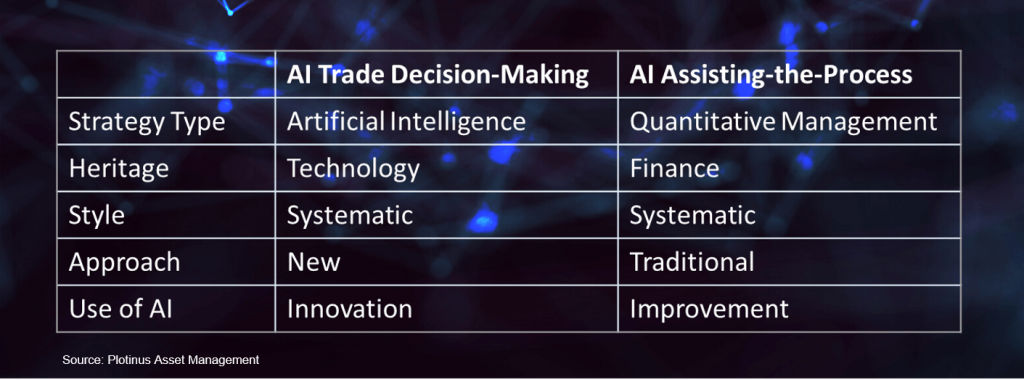Artificial intelligence can be deployed to help investors navigate the post-coronavirus backdrop. Whereas popular yield-enhancing strategies, such as venture capital, often require redemption lockups and may lead to valuation surprises, advanced technology empowers portfolio managers to exploit otherwise established trading patterns in public securities, argues a new white paper by Plotinus Asset Management.
Press Release: This Post Was Originally Published by Our Public Affairs Desk
The white paper is authored by CJ Finnegan, a pioneer in deploying artificial intelligence as a complement to passive investment strategies. Through a Cayman-based fund for qualified investors, his firm takes advantage of advanced technology on a real-time basis for those looking to outperform a broad index of US stocks.
An Investor’s Guide to Artificial Intelligence Strategies positions these new approaches in the context of the broad asset-management industry. “Accountability for risk-controlled strategies has led many firms to be relatively slow at adopting new technologies,” according to Finnegan. “The potential for a volatile market backdrop over the cycle ahead, in tandem with an uncertain economic landscape, is likely to accelerate the widespread use of artificial intelligence.”
Artificial Intelligence: Clarifying Alternative Approaches

Finnegan points out that investors need to distinguish between two distinct approaches to using artificial intelligence. One angle is to use AI as a complement to existing models, an approach he labels “assisting-the-process.” A more dynamic application is to use AI to drive all trade decision-making, albeit with active human oversight.
“Because artificial intelligence-based strategies are so new, investors are struggling on how to categorize them, often evaluating them in the context of known quantitative methods. That alignment is a mistake,” emphasizes Finnegan.
He continues, “Quant strategies have evolved over time, incorporating incremental advances in technology on a layered basis. AI-based approaches to portfolio management, on the other hand, have sprouted directly from the technology industry, offering enormous potential through fast-paced innovation.” ■
Image Credit: Yurchanka Siarhei at Shutterstock.

